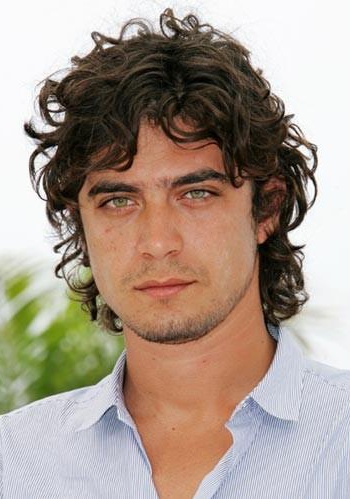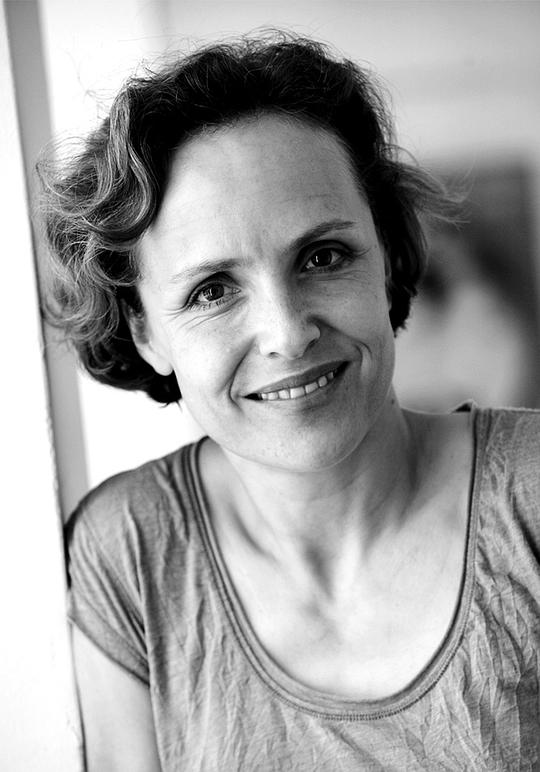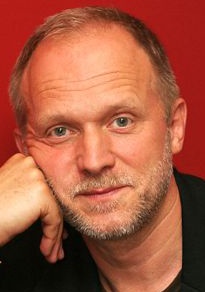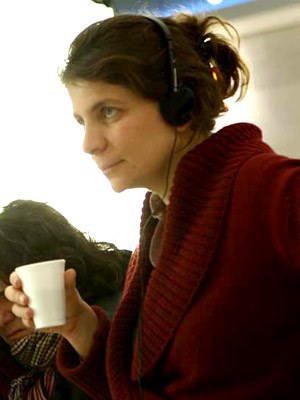伊甸在西方 Eden à l'Ouest(2009)

又名: 西方伊甸園 / Eden Is West
导演: 科斯塔-加夫拉斯
编剧: 科斯塔-加夫拉斯 让-克劳德·古卢姆伯格 Jean-Claude Grumberg
主演: 里卡尔多·斯卡马奇奥 茱莉安·柯勒 乌尔里希·图库尔
类型: 剧情
上映日期: 2009-02-11
片长: Argentina: 110 分钟(Mar del Plata Film Festival) IMDb: tt1158936 豆瓣评分:8 下载地址:迅雷下载
简介:
- 来自东方的埃利亚斯是个在西方世界到处寻找新家的移民,在不同的陌生地方流浪,遇到许多不同的人,忍受着他人各种态度和目光。这一切都缘自他的伟大希望:活下去开始新生活。他游侠式的生活在巴黎以一种神奇的方式达到了圆满结果。
演员:
影评:
- “如果你来巴黎,就来找我”
埃利亚斯一直重复着这句话,笃定,真诚。
漂亮的眼睛坚定而清澈。
柔软的头发在希腊蓝色的海风中舒展开来。
他究竟是为了什么而来?
乘坐着拥挤的偷渡船只,偷偷摸摸,把关于过往的回忆扔进大海。
是一个什么样的梦想?出人投地或者是寻找另一片淘金的乐土?要冒着生命的危险来到异国他乡。
他又是幸运的。虽然经历了一些意外,不过竟然从中也得到了来此的意义。魔术师的名片就像是迷雾中的灯塔给困扰与焦虑中的埃利亚斯指出了一条路。因为有了坚信的东西,所以才有奇迹,所以才能历经千辛万苦去到所向往的地方。
纵使魔术师最后对埃利亚斯的到来无动于衷,不过,没有他当初的一番话,埃利亚斯也没有可能不顾一切的来到巴黎,也没有了一路上他所遇到那些经历。这些才是最重要的。
有时候,我们只是需要一个上路的借口,然后一口气走到头,即使没有预料中的结果,但是总可以用一根假魔杖点燃埃菲尔铁塔的灯火。 - 看着影片我一直有个疑问,为何有那么多人秉承着梦想想要偷渡去富庶的地方,是因为以后的富裕还是因为怀揣着梦想。但这个梦想有太多的风险,有太多的不确定,正因为如此,有着梦想的人们才会有如此的勇气去冒险吧。
埃利亚斯有一副好皮囊和好品质,正因为如此他得到了许多人的帮助,魔术师的一句信口开河让他千里迢迢来到了巴黎,可是魔术师的不削又让他无限的失望。喜欢最后他拿着魔术棒貌似点燃铁塔的感觉,渺小的他也可能创出无限的奇迹吧。
影片是一个无言的结局,他的命运无人能知,不过我相信以他的聪慧,真诚一定能在繁华似锦的法国生存下去。 - A HANDSOME young man from somewhere on the far shores of the Mediterranean jumps off a ship full of illegal immigrants. He swims towards the lights on the coastline, hoping to make it to a better life in France.
He can hardly believe his eyes when he wakes up on a beach next morning. Naked men and women are frolicking in the sun with beach balls. Welcome to Europe, the film seems to be saying, a veritable paradis sur mer. But is this a land of freedom or an exhausted, decadent civilisation in decline?
Eden Is West is directed by Costa-Gavras, who was born in Greece. He went to Paris in 1951 to study. Since then, he has put down deep roots in France, taken citizenship and become hugely respected as a political filmmaker, the director of Z (1969), State of Siege ('73), Missing ('81), and Music Box ('89).
Most of these are not at all comedic but in Eden Is West the 76-year-old Costa-Gavras makes light as he makes heavy. It's basically a road movie in praise of the courage of immigrants, a story that has plenty of currency, not just in Europe.
It's also a film about how his adopted country and its neighbours have largely lost their compassion. Lastly, it's a satire, drawn roughly along the lines of The Odyssey, in an attempt to get away from the fact that most movies about immigrants are dour, sombre and depressing.
It's a good idea but Costa-Gavras never quite brings it off, partly because the tone is too pessimistic. Sticking it to Europe's decadence becomes the loudest note, robbing most of the characters of their humanity.
The tension is always between Costa-Gavras's dark view of human nature and his main character's hopes for the future. It's an uneven battle, although the film has enough strong and thoughtful moments to make you wish it was better.
The young man Elias (Riccardo Scamarcio) realises he's at a nudist resort. He shucks his undies and scampers to the change room, stealing the lifeguard's clothes, the first of many costumes he will adopt in an effort to blend in. He's at the Eden Club Paradise, a name full of inference.
People initially take him for a staff member. He carries bags, meets a German woman who fancies him and some ugly Russians who need him to unblock their toilet. Elias accepts this revolting indignity without a murmur. He can't speak French, the place is surrounded by cops and Costa-Gavras wants to make clear that dignity is the first thing the immigrant has to let go, especially if he's illegal.
We're never told where Elias comes from. On the boat, before he's separated from his best friend (Odysseas Papaspiliopoulos), they speak a made-up language so that we can't put them in any box. The police search the resort and the guests join in, with the gusto of Le Pen supporters.
By now, Elias has become a "guest", clothed and fed by the lonely German tourist Christina (Juliane Koehler). She protects him from the officious staff but he pays a price. He's basically a sex slave.
This is after he's already been sexually assaulted by a predatory gay staff member. Once he leaves the resort, he begins a slow and eventful journey north, during which he has to fend off more sexual advances.
After the fourth or fifth one, I wondered why the director couches his humiliations largely in sexual terms. Even those who are nice to him usually want sex.
It's as if Europe has become a place of deviants, bullies, randy truckies and skinheads. Granted, it's a fairytale structure, so exaggeration is expected, but why reduce the argument to a question of who wants to get laid? - 一段旅程 无限叹息
然而让我最为挂心的
却是他为何背井离乡 踏上这条艰险的路
在影片结束后 他又将走向何处





